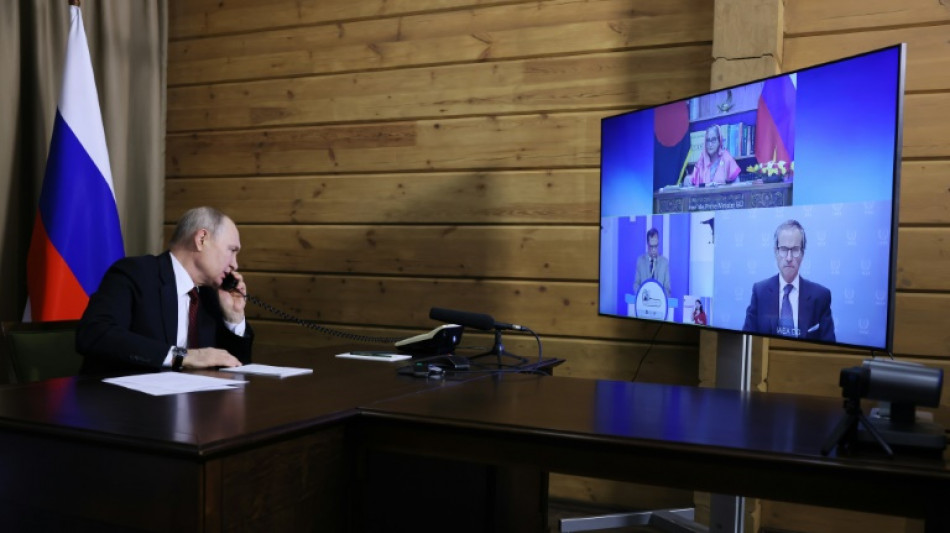
-
 French cycling hope Seixas dreaming of Tour de France debut
French cycling hope Seixas dreaming of Tour de France debut
-
France detects Russia-linked Epstein smear attempt against Macron: govt source

-
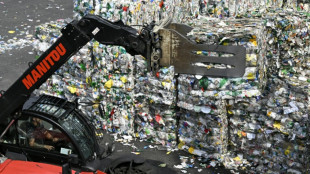 EU nations back chemical recycling for plastic bottles
EU nations back chemical recycling for plastic bottles
-
Terror at Friday prayers: witnesses describe blast rocking Islamabad mosque
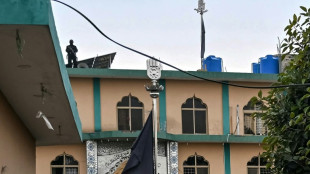
-
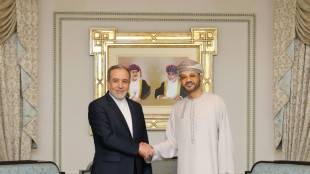 Iran expects more US talks after 'positive atmosphere' in Oman
Iran expects more US talks after 'positive atmosphere' in Oman
-
US says 'key participant' in 2012 attack on Benghazi mission arrested
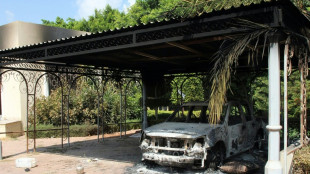
-
 Why bitcoin is losing its luster after stratospheric rise
Why bitcoin is losing its luster after stratospheric rise
-
Arteta apologises to Rosenior after disrespect row

-
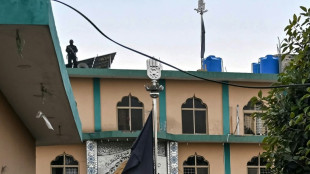 Terror at Friday prayers: witness describes 'extremely powerful' blast in Islamabad
Terror at Friday prayers: witness describes 'extremely powerful' blast in Islamabad
-
Winter Olympics men's downhill: Three things to watch

-
 Ice dancers Chock and Bates shine as US lead Japan in team event
Ice dancers Chock and Bates shine as US lead Japan in team event
-
Stellantis takes massive hit on 'overestimation' of EV demand

-
 Stocks rebound though tech stocks still suffer
Stocks rebound though tech stocks still suffer
-
Spanish PM urges caution as fresh rain heads for flood zone
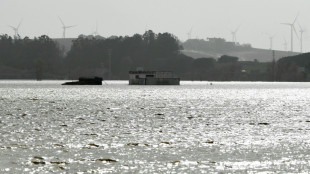
-
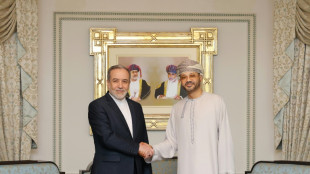 Iran says to hold more talks with US despite Trump military threats
Iran says to hold more talks with US despite Trump military threats
-
Russia accuses Kyiv of gun attack on army general in Moscow
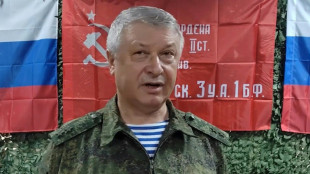
-
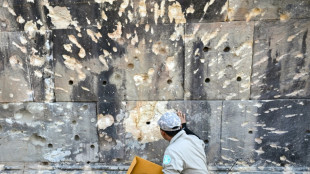 Cambodia reveals damage to UNESCO-listed temple after Thailand clashes
Cambodia reveals damage to UNESCO-listed temple after Thailand clashes
-
Norway crown princess 'deeply regrets' Epstein friendship

-
 Italy set for Winter Olympics opening ceremony as Vonn passes test
Italy set for Winter Olympics opening ceremony as Vonn passes test
-
England's Jacks says players back under-fire skipper Brook '100 percent'

-
 Carrick relishing Frank reunion as Man Utd host Spurs
Carrick relishing Frank reunion as Man Utd host Spurs
-
Farrell keeps the faith in Irish still being at rugby's top table

-
 Meloni, Vance hail 'shared values' amid pre-Olympic protests
Meloni, Vance hail 'shared values' amid pre-Olympic protests
-
Olympic freestyle champion Gremaud says passion for skiing carried her through dark times

-
 US urges new three-way nuclear deal with Russia and China
US urges new three-way nuclear deal with Russia and China
-
Indonesia landslide death toll rises to 74
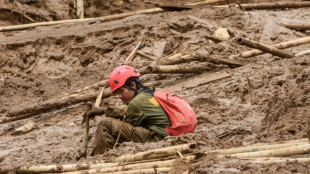
-
 Hemetsberger a 'happy psychopath' after final downhill training
Hemetsberger a 'happy psychopath' after final downhill training
-
Suicide blast at Islamabad mosque kills at least 31, wounds over 130

-
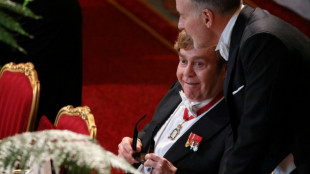 Elton John accuses UK tabloids publisher of 'abhorrent' privacy breaches
Elton John accuses UK tabloids publisher of 'abhorrent' privacy breaches
-
Lindsey Vonn completes first downhill training run at Winter Olympics

-
 Digital euro delay could leave Europe vulnerable, ECB warns
Digital euro delay could leave Europe vulnerable, ECB warns
-
Feyi-Waboso out of England's Six Nations opener against Wales

-
 Newcastle manager Howe pleads for Woltemade patience
Newcastle manager Howe pleads for Woltemade patience
-
German exports to US plunge as tariffs exact heavy cost

-
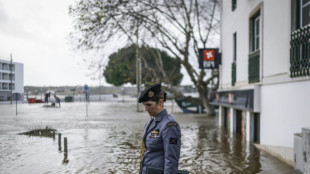 Portugal heads for presidential vote, fretting over storms and far-right
Portugal heads for presidential vote, fretting over storms and far-right
-
Suicide blast at Islamabad mosque kills at least 30, wounds over 130: police

-
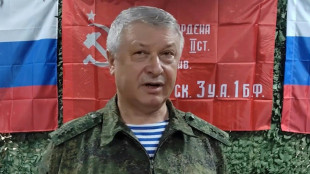 Russia says Kyiv behind Moscow shooting of army general
Russia says Kyiv behind Moscow shooting of army general
-
Greenland villagers focus on 'normal life' amid stress of US threat

-
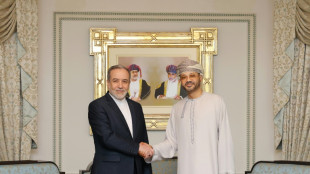 Iran, US hold talks in Oman after Trump military threats
Iran, US hold talks in Oman after Trump military threats
-
Stocks waver as tech worries build

-
 Dupont, Jalibert click to give France extra spark in Six Nations bid
Dupont, Jalibert click to give France extra spark in Six Nations bid
-
'Excited' Scots out to prove they deserve T20 World Cup call-up

-
 EU tells TikTok to change 'addictive' design
EU tells TikTok to change 'addictive' design
-
India captain admits 'there will be nerves' at home T20 World Cup

-
 Stellantis takes massive hit for 'overestimation' of EV shift
Stellantis takes massive hit for 'overestimation' of EV shift
-
'Mona's Eyes': how an obscure French art historian swept the globe

-
 Iran, US hold talks in Oman
Iran, US hold talks in Oman
-
Iran, US hold talks in Oman after deadly protest crackdown

-
 In Finland's forests, soldiers re-learn how to lay anti-personnel mines
In Finland's forests, soldiers re-learn how to lay anti-personnel mines
-
Israeli president visits Australia after Bondi Beach attack

| SCS | 0.12% | 16.14 | $ | |
| GSK | 1.11% | 59.835 | $ | |
| NGG | 0.79% | 87.585 | $ | |
| CMSC | -0.19% | 23.505 | $ | |
| BTI | 1.55% | 62.933 | $ | |
| BCC | 1.65% | 90.66 | $ | |
| BCE | -0.71% | 25.39 | $ | |
| AZN | 3.29% | 193.53 | $ | |
| CMSD | 0.17% | 23.931 | $ | |
| RIO | 2.12% | 93.09 | $ | |
| JRI | 0.76% | 12.979 | $ | |
| RBGPF | 0.12% | 82.5 | $ | |
| RYCEF | 0.3% | 16.67 | $ | |
| VOD | 2.7% | 15.025 | $ | |
| BP | 2.05% | 38.97 | $ | |
| RELX | -1.67% | 29.595 | $ |

Bangladesh accepts first uranium for Russia-backed nuclear plant
Bangladesh on Thursday received the first uranium delivery for its Russia-backed nuclear plant, a project aimed at bolstering its overstretched energy grid but complicated by sanctions on Moscow.
Prime Minister Sheikh Hasina has courted Russian ties with renewed vigour after Western criticism over her government's rights record.
Moscow is bankrolling the $12.65-billion plant with a loan for 90 percent of its cost, with hopes it will alleviate the chronic blackouts plaguing the South Asian nation.
"Today is a day of pride and joy for the people of Bangladesh," Hasina said during a videoconference with Russian President Vladimir Putin to mark the handover.
Hasina thanked Putin for "his guidance and assistance in implementing this project".
Construction on the nuclear plant at Rooppur, a village on the banks of the Ganges river 175 kilometres (110 miles) west of the capital Dhaka, began in 2017.
The first of its twin 1,200-megawatt units is slated to begin operations next year and both reactors should be fully online in 2025, Bangladesh technology minister Yeafesh Osman told reporters on a Wednesday tour of the facility.
Washington's sanctions on key Russian firms since last year's invasion of Ukraine, including state nuclear agency Rosatom, delayed construction work because Dhaka was unable to make loan repayments in US currency.
In April, Bangladesh agreed to make payments of more than $300 million in Chinese yuan in an effort to circumvent the sanctions.
But central bank officials have said that the money has yet to be paid.
"The whole world is facing this payment problem and we're no exception," Osman said. "However, we are trying to solve the problem."
Hasina's government is eager for new friends ahead of general elections due by the end of January, with Western governments and rights groups warning her government is silencing critics and stamping out political dissent.
Washington levelled sanctions against Bangladesh's elite Rapid Action Battalion (RAB) police force in 2021 over accusations of their involvement in the extrajudicial killing of opposition activists.
The lack of payment has not outwardly affected Bangladesh's pursuit of a closer relationship with Moscow.
Russian Foreign Minister Sergei Lavrov visited Dhaka for the first time last month and used the occasion to criticise "the pressure exerted upon Bangladesh by the United States and its allies".
- Power struggles -
The Rooppur plant is the most expensive infrastructure project undertaken by Hasina, who has been in power since 2009, and will be the country's largest power station by generating capacity once fully operational.
Bangladesh has several more coal and gas-fired plants under construction but is desperate to reduce its near total reliance on fossil fuels.
Its electricity grid has shown increasing signs of stress, with a spike in energy prices precipitated by the Ukraine war forcing the government to suspend gas and diesel imports last year.
The result was months of daily power blackouts sometimes lasting up to 13 hours. A separate grid failure last October cut power to more than 80 percent of the country's 169 million people.
This past summer Bangladesh was forced to shut its current biggest power plant because it was unable to afford the coal to fuel it during a sweltering heatwave.
Bangladesh also plans to build a second nuclear power station in the country's south, though a final site has not been decided.
Officials have cast Bangladesh's atomic energy ambitions as a key plank of the fight against climate change in a low-lying country more vulnerable than most to extreme weather.
"It will help Bangladesh cut carbon emissions significantly by 2030," Shawkat Akbar, head of the Rooppur plant, told AFP.
Nuclear energy is one of the world's largest sources of emissions-free energy.
But there are persistent concerns about the safety risks and disposal of nuclear waste, and opponents point out nuclear plants take many years to build compared to more quickly deployable renewable energy sources.
W.Mansour--SF-PST




